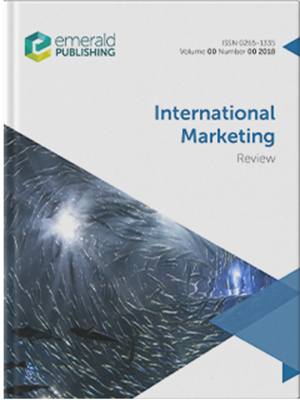The impact of social media communication on consumer-based brand equity and purchasing intent in a pandemic
IF 4.6
3区 管理学
Q1 BUSINESS
引用次数: 0
Abstract
PurposeThis study aims to investigate the impact of the source of the content in social media communication and the content distribution intensity on consumer-based brand equity (CBBE) dimensions and how the study will eventually impact purchase intention.Design/methodology/approachA total of 521 samples were collected using an online survey questionnaire. The respondents' validity was verified using purposive sampling techniques, and the responses were analysed using SmartPLS 3.0.FindingsThe authors outlined the fundamental mechanisms of what makes social media communication effective and discovered that emotional-based brand equity dimensions (brand association and brand loyalty) remained significant in influencing purchase intention. However, attribution-based brand equity dimensions (perceived quality, brand trust and brand awareness) are found to have no impact.Originality/valueThis study decomposed social media communication into three different dimensions, and the authors' result showed that the dimensions do not impact CBBE to the same extent. The authors concluded that some CBBE dimensions, which appear to be a rigour determinant of purchase intention over time, have a feeble effect during the pandemic. The existing relationship between the CBBE dimensions with purchase intention might not hold in the pandemic context. The authors suggested that anxiety or pandemic fear could alter the normal consumer buying process and make some well-established relationships not hold. As research indicates that pandemics are reoccurring events, the authors' study contributes to the global effort to dampen some of the pandemic-related effects on business and marketing.大流行时期,社交媒体传播对消费者品牌资产和购买意愿的影响
目的本研究旨在调查社交媒体传播中的内容来源和内容分发强度对基于消费者的品牌资产(CBBE)维度的影响,以及该研究最终将如何影响购买意愿。设计/方法/方法使用在线调查问卷共收集了521个样本。使用有目的的抽样技术验证了受访者的有效性,并使用SmartPLS 3.0分析了他们的回答。作者概述了社交媒体传播有效的基本机制,并发现基于情感的品牌资产维度(品牌联想和品牌忠诚度)在影响购买意愿方面仍然很重要。然而,基于归因的品牌资产维度(感知质量、品牌信任和品牌意识)没有影响。原创性/价值本研究将社交媒体传播分解为三个不同的维度,作者的结果表明,这些维度对CBBE的影响程度不同。作者得出结论,随着时间的推移,CBBE的一些维度似乎是购买意愿的严格决定因素,但在疫情期间效果甚微。CBBE维度与购买意向之间的现有关系在疫情背景下可能不成立。作者认为,焦虑或对疫情的恐惧可能会改变正常的消费者购买过程,并使一些既定的关系无法维系。由于研究表明,流行病正在复发,作者的研究有助于全球努力抑制与流行病相关的对商业和营销的一些影响。
本文章由计算机程序翻译,如有差异,请以英文原文为准。
求助全文
约1分钟内获得全文
求助全文
来源期刊

International Marketing Review
BUSINESS-
CiteScore
8.70
自引率
12.00%
发文量
55
期刊介绍:
International Marketing Review (IMR) is a journal that has, as its core remit, the goal of publishing research that pushes back the boundaries of international marketing knowledge. IMR does this by publishing novel research ideas, and by publishing papers that add substance to, question the basic assumptions of, reframe, or otherwise shape what we think we know within in the international marketing field. IMR is pluralistic, publishing papers that are conceptual, quantitative-empirical, or qualitative-empirical. At IMR, we aim to be a journal that recognizes great papers and great research ideas, and works hard with authors to nurture those ideas through to publication. We aim to be a journal that is proactive in developing the research agenda in international marketing, by identifying critical research issues, and promoting research within those areas. Finally, IMR is a journal that is comfortable exploring, and that fosters the exploration of, the interfaces and overlaps between international marketing and other business disciplines. Where no interfaces or overlaps exist, IMR will be a journal that is ready to create them. IMR’s definition of international marketing is purposefully broad and includes, although is not restricted to: -International market entry decisions and relationships; -Export marketing and supply chain issues; -International retailing; -International channel management; -Consumer ethnocentrism, country and product image and origin effects; -Cultural considerations in international marketing; -International marketing strategy; -Aspects of international marketing management such as international branding, advertising and new product development.
 求助内容:
求助内容: 应助结果提醒方式:
应助结果提醒方式:


